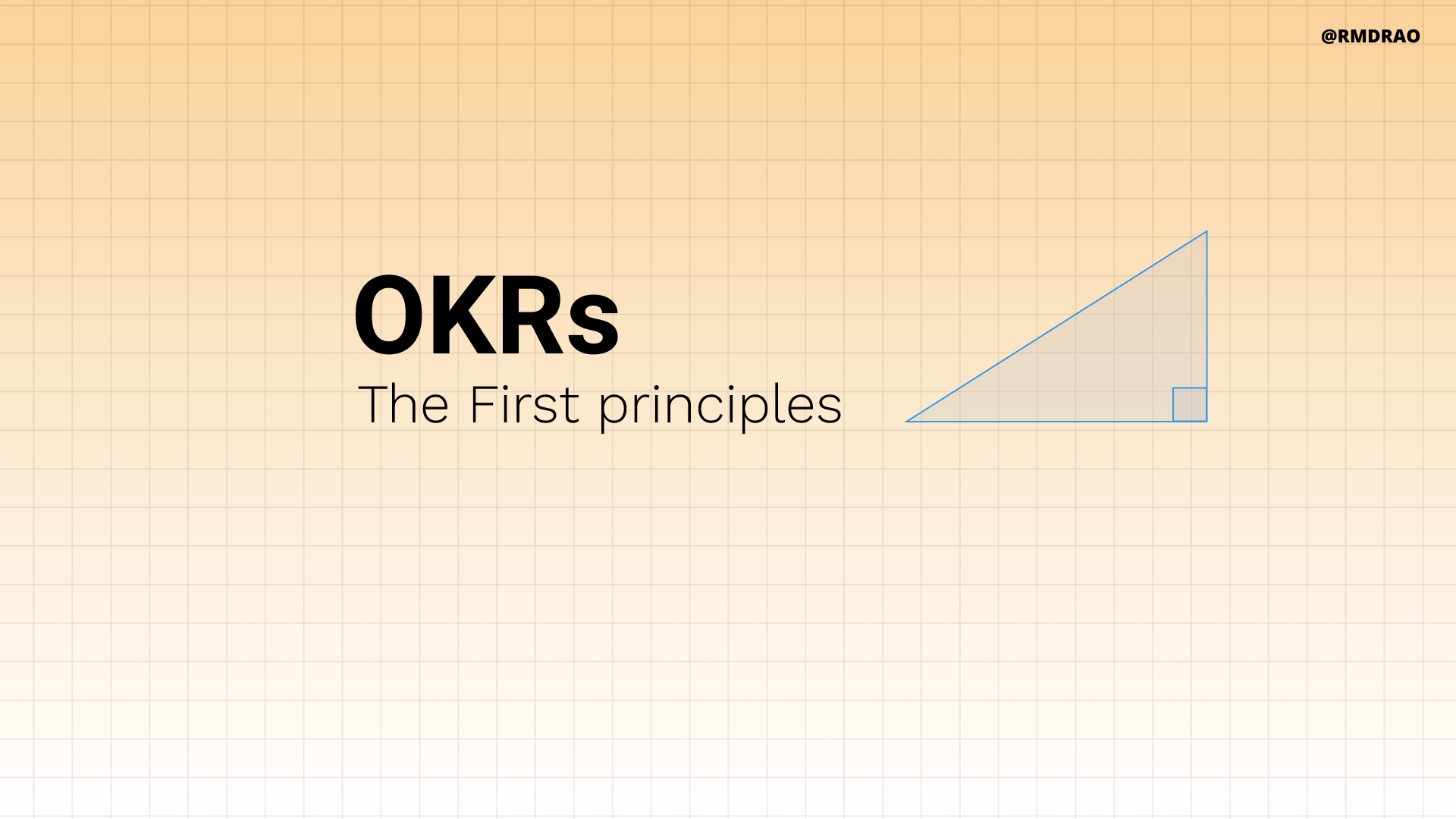By now you have heard every company tout that they are OKR driven. The truth in most cases is they have changed the branding of what used to be called objectives and goals to OKRs. However this window dressing creates a lot of unnecessary confusion in the system.
OKRs are however fundamentally different beasts from management by objectives. Just because it worked for Google and 2 dozen other companies does not mean it would work for yours. As with all methodologies one needs to understand a company-culture-fit to adopt and make OKRs their own. The truth is not all companies need OKRs and not all companies can pull them off.
Here are some my first principles on using OKRs
OKRs helps you deal in unknowns
The upside of using OKRs is they give a framework when you are dealing with unknowns. This could be a case of achieving product market fit in existing or new markets. This could also be the case of innovation and new product development. When the road ahead is unclear all decisions and equally bad and equally good. OKRs not only help you focus on Outcomes that matter, but what matters now !!
If you have very clear goals like sales targets or impending launches etc it is better to frame OKRs around the unknowns or the variables in the known process. Instead of saying achieve XYZ revenue target it could be better framed as a conversion problem. Instead of it being a product launch it could be about acquiring new users. Better problem definitions foster better creativity.
OKRs bring transparency and alignment
What makes an org tick is when everyone has a common understanding of that game they are playing. At the heart of using OKRs well is an assumption that when everyone understands what motivates each other, they align themselves better. In a rich innovation culture even individual OKRs are shared, so each individual knows what is each other’s leverage.
OKRs thrive when they cascade all the way from Company to Team to Individual levels. So instead of everyone trying to move the needle on profitability, revenue or growth everyone knows specifically what would move the needle for the company, the team and themselves. So everyone knows their roles very well and also how everyone’s roles lines up.
An easy way to botch up an OKR implementation is getting only specific teams to use OKRs or not share OKRs widely across groups.
OKRs are about discipline
OKRs work well when there is rigour, discipline and process in how they are used. OKRs are central tenets that teams need to obsess about. They are NOT meant as management control. In fact in companies where OKRs are successfully used they are strictly NOT used measuring individual performance. They are meant to facilitate an easy framework for teams to decide on what matters.
Hence OKRs are not commandments visited once a quarter during planning but a breathing living embodiment of what the team wants to achieve.
As with a lot of software methodologies what works best is when you understand what you are doing, measure it and learn from the feedback. Same holds true for OKRs.
OKRs require a different leadership paradigm
For managers who have earned their stripes under a management by objective based approach OKRs presents interesting challenges.
- Firstly OKRs don’t cover all the work that is happening in the team, they just highlight key areas of learning that the team wishes to focus on any given time. There will always be work important beyond OKRs. So at any point of time there will be a lot of uncertainty in the system. Progress feels incremental but results are exponential.
- Secondly the focus shifts from deliveries to micro deliveries, learning and validation. This is a hard sell for many managers who like to keep building and have no time for slow flames of learning.
- Lastly OKRs work well where leaders exhibit servant leadership and empower their team. OKRs particularly fall hard when a know it all leader assumes command and control approach
Would love to hear your thoughts on how you have seen OKRs used and abused.
I have assumed you understand the basics of OKRs. In case you would like a refresher some great resources to start are
- Video : John Doerr’s Ted Talk
- Book : Radical Focus by Christina Wodkte
- Felipe Castro Blog post A very thorough high level summary on OKRs


